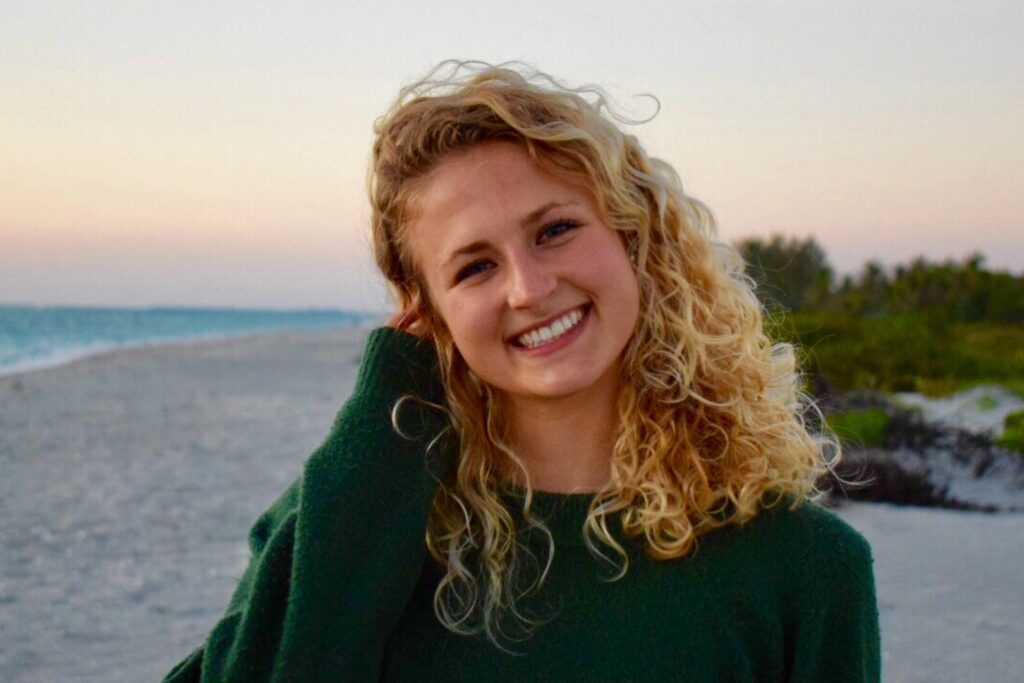Thoughts on Theses: Abby LeCates

Abby LeCates is an anthropology major on the pre-medicine track. Her thesis explores the relationship between recovery networks for opioid addicts and the criminal justice system in upstate New York. Her thesis advisor is Winthrop H. Smith 1916 Professor of Sociology Jerome Himmelstein.
Q: What is your thesis about?
A: Very broadly, it’s about the opioid epidemic in upstate New York. I was initially interested in studying it because I’m really interested in medical anthropology, and I wanted to do research. I’m from upstate New York so I wanted to research a place that is important to me. I wasn’t really sure what it was going to be about at first so it’s been a long process of figuring out exactly what’s going on. But something I noticed as I was doing research and interviewing people is that even though there’s been this turn towards treatment in the present epidemic, the criminal justice system still remains embedded in responses towards addiction. That comes in part of a long history of criminalization in the country towards drug use. Initially, I was interested in specifically studying experiences of recovery, and I imagined that those experiences would be somewhat removed from the criminal justice system. But I learned that it was completely tied to it. I’m thinking about how these two contradictory approaches to addiction are working together and what that relationship looks like and how that might affect experiences of care in upstate New York.
Q: How did you come up with the idea?
A: I’ve also been really interested in studying mental health from an academic perspective within medical anthropology. I’ve been thinking about how people talk about any mental illness but then specifically addiction and the stigma that persists around addiction. A lot of effort has been done to reduce the stigma in various ways, but something that I found is people are struggling with a double stigma of having a criminal record and also being addicted. That makes recovering so much harder. I mean, a lot of the recovery organizations [will say something] like “Addiction is like diabetes, [a disease].” People make that comparison really readily just to decrease the stigma. But if you have [a disease], you don’t necessarily have a criminal record [but a lot of people in recovery do] so that just makes it doubly difficult to find housing, find employment. So part of the community mobilization that I observed was specifically taken to reduce that stigma. So there are now recovery-friendly workplaces that are opening in the county where they hire people regardless of their criminal record and they support them in their recovery. So they re-organize their work schedule around when they have to attend meetings.
Q: What has your favorite part of the process been so far?
A: I like being able to go back and talk to leaders in the community. I mean, I had lived in the community the whole time that they have been working there but just never had the same appreciation for the work that they do. And just learning about all of the work that my community is doing to take care of people has been really great to learn about and really interesting. I’m seeing this whole other side I haven’t seen before.
Q: Has this work hanged the way you view your home community at all?
A: I’m really impressed by how much people are doing to take care of people in crisis. There’s a woman who was working in hospital administration, but then she and her husband started this motel to act as a form of affordable housing. They’ve taken on so much responsibility to take care of people. She has emphasized to me throughout our conversations that she just feels like it’s her calling so she and her husband will drive people to and from the closest towns so that [their clients] can get to work on time and get to their support meetings. I just found that really impressive.
Q: What’s been the hardest part?
A: The hardest part was starting with such a broad topic, like knowing that I want to write about something within medical anthropology and then as I kept learning more through interviews, I wasn’t sure where they were going. Sorting through all that information and asking myself, “what’s going on here?” and “what’s important and what should people hear about?”
Q: What advice do you have for students thinking of writing a thesis?
A: I would say, “Yeah, go for it!” I think it’s been really rewarding to see how everything has come together and to see all of my ideas come together in a final product. And I guess it felt initially very overwhelming and definitely at some points last semester, I was like, “What am I doing?” Like this is not going to come to fruition. But at this point, in hindsight, I feel like I’ve learned a lot, just through the process of trying to sort through all my ideas and being able to interview people. I mean even just sending professional emails and not feeling so stressed about that. And making calls, getting over my terrible fear of phone calls.





Comments ()